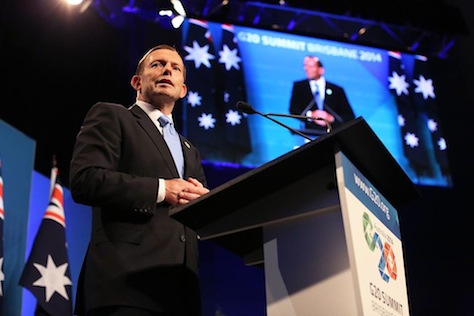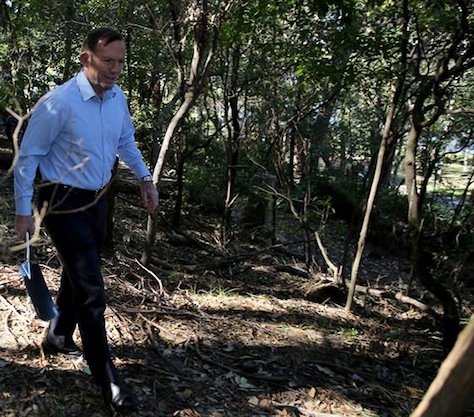More than an unpopular mining tax or one of the world’s most progressive carbon trading schemes, Australian voters booted the last Labor government as a punishment for the personality-driven drama between Kevin Rudd and Julia Gillard who, in six years of government, traded the premiership twice and fought through four different leadership battles.![]()
Rudd eventually returned to leadership in the summer of 2013 when its fickle members worried that sticking with Gillard would result in an electoral catastrophe. Labor lost the election anyways, and Tony Abbott, the conservative leader of the opposition Liberal/National Coalition, became prime minister.
Just 17 months after taking office, however, Abbott now faces the same dynamic, and Australia’s prime minister survived a ‘leadership spill’ earlier this week by a narrow margin of 66 to 39. If successful, the challenge would have opened the way for a direct leadership contest, presumably against either two more popular figures — communications leader (and former Liberal leader) Malcolm Turnbull or Australia’s foreign minister Julie Bishop, a rising star.
The leadership wobbles point to a growing trend of snap leadership contests that are reshaping Australian politics by narrowing the time horizons for leaders of both major parties. Though that makes party leaders conceivably much more responsive to their colleagues and it also gives individual government ministers more power and leverage, it correspondingly creates uncertainty and drives weaker leadership. Think, for example, of the rotating-door premierships so common in Japan or Italy for much of the post-war era.
Why Abbott was so vulnerable
Abbott largely did what he said he would do when he was elected in September 2013. He’s deployed enough military personnel and detained enough asylum seekers at detention centers in Papua New Guinea to sufficiently disincentivize immigrants from attempting the dangerous trek to Australia by boat. He successfully won enough support among the Australian Senate’s independents to kill both Rudd-Gillard era accomplishments — first, their landmark carbon trading scheme and, a month later, an unpopular tax on mining profits (that, in any event, raised far less revenue than initially anticipated). For good measure, Abbott finalized two key free trade deals, with Japan and with South Korea, at a time when the Australian economy is reeling from both China’s economic slump and a decline in global commodities prices. In the crisis over downed Malaysian Airline flight 370, he showed genuine regional leadership, especially in contrast to the Malaysian government. In Abbott, Australians got exactly the prime minister that was advertised — a passionate right-wing conservative not afraid of controversy.
But that meant that Abbott too often embraced awkward positions. Continue reading History shows Abbott faces long odds in holding Oz premiership


